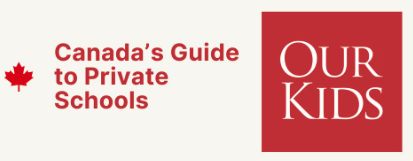The Ontario Curriculum Grades 11 and 12 Interdisciplinary Studies
The Place of Interdisciplinary Studies in the Curriculum
Our world is increasingly interconnected and interdependent. Communications networks exchange information around the globe, creating new forms of collaboration and transforming the nature of work and learning. New areas of study develop to advance human knowledge and respond to the challenges of our changing world with insight and innovation. These include areas that often combine or cross subjects or disciplines, such as space science, information management systems, alternative energy technologies, and computer art and animation. Students today face an unprecedented range of social, scientific, economic, cultural, environmental, political, and technological issues. To deal with these issues, they first need competencies derived from discrete disciplines.
To deal with today’s issues, students also require interdisciplinary1 skills that focus on the issues themselves, especially skills related to the research process, information management, collaboration, critical and creative thinking, and technological applications. Students need to know new methods and forms of analysis, interpretation, synthesis, and evaluation that will allow them to build on skills acquired through the core curriculum. Interdisciplinary practitioners can use modern systems-thinking and systems-design2 approaches to investigate how lasting solutions take into account all external and internal factors. Using models and prototypes, students can simulate ideas and test variables to produce new products or perspectives or find and implement solutions that go beyond established disciplines
To make sense of the growth and often disparate nature of data and information, students must become information literate.3 To do this, they must be able to combine diverse models of research and inquiry, integrate a range of information-management skills and technologies, and apply the processes of information organization, storage, and retrieval to new situations and across many disciplines. Consequently, it is important to recognize that the skills, knowledge, insights, and innovations of the discipline of information studies are central to interdisciplinary work
Students with well-developed information studies skills and knowledge will have increased marketability in a variety of careers. For instance, biology and chemistry graduates who know how to use global networks for scientific research to retrieve information and manage data will have greater opportunities for work in research labs. In the same way, graduates of economics, history, and political science who have taken courses requiring them to use information systems, online databases, and advanced research methods should have increased employment opportunities.
For the purposes of this document, the term interdisciplinary is used to describe an approach to learning and knowledge that integrates and benefits from the understanding and application of the approaches of different subjects and disciplines. The course expectations in this document reflect the following approaches: multidisciplinary approaches where the subjects or disciplines are connected through a theme, issue, problem, or research question; interdisciplinary approaches where a theme, issue, problem, or research question defines the approach taken and directs the attempt to seek a synthesis across object/discipline boundaries; transdisciplinary approaches where real-life contexts direct learning that goes beyond particular subjects or disciplines.
Information literacy is the ability to access, select, gather, critically evaluate, and communicate information in all disciplines, and to use the information obtained to solve problems, make decisions, develop knowledge, and create new ideas and personal meaning.
The goal of the interdisciplinary studies program in Grades 11 and 12 is to ensure that students:Control how you learn & progress
Build on and interconnect, in an innovative way, concepts and skills from diverse disciplines;
Develop the ability to analyse and evaluate complex information from a wide range of print, media, electronic, and human resources;
Learn to plan and work both independently and collaboratively;
Are able to apply established and new technologies appropriately and effectively;
Use inquiry and research methods from diverse disciplines to identify problems and to research solutions beyond the scope of a single discipline;
Develop the ability to view issues from multiple perspectives to challenge their assumptions and deepen their understanding;


